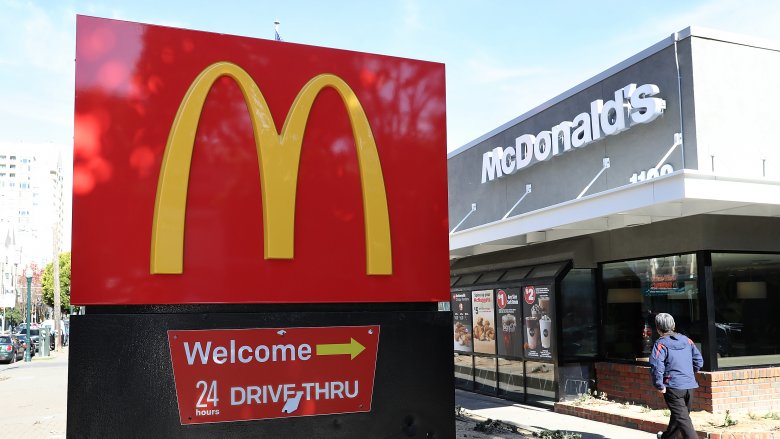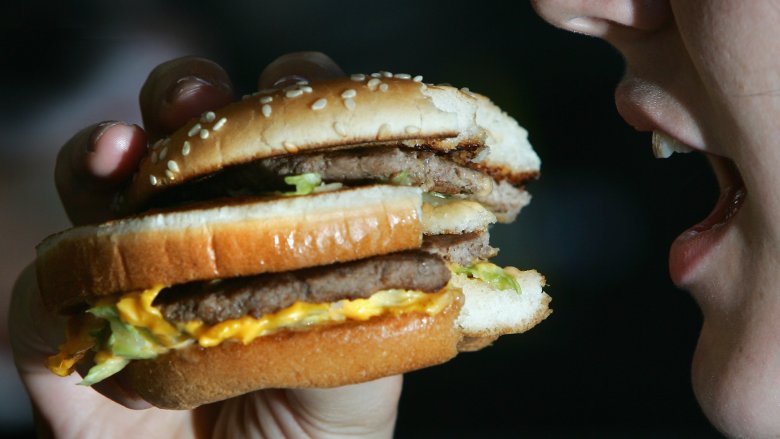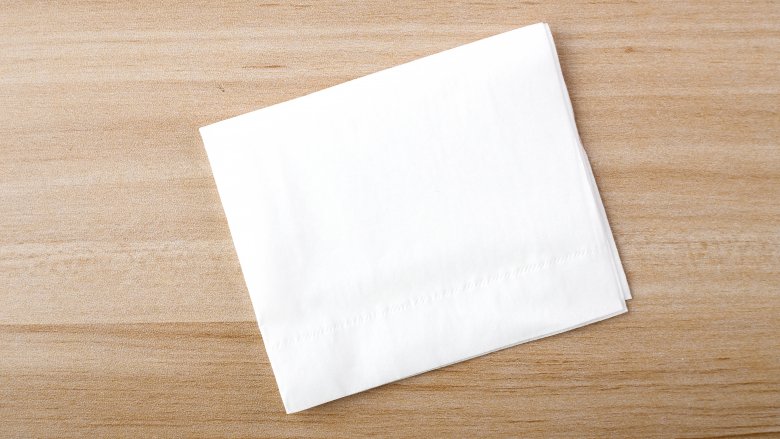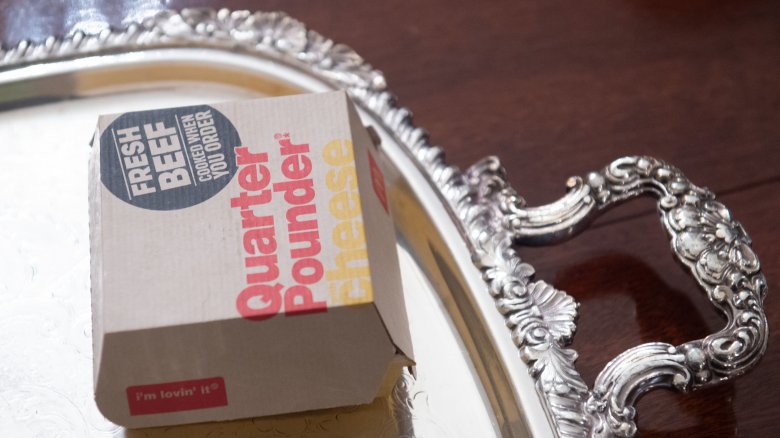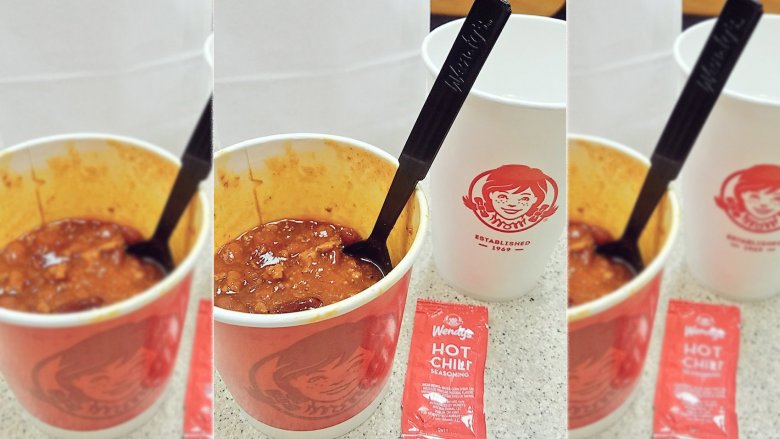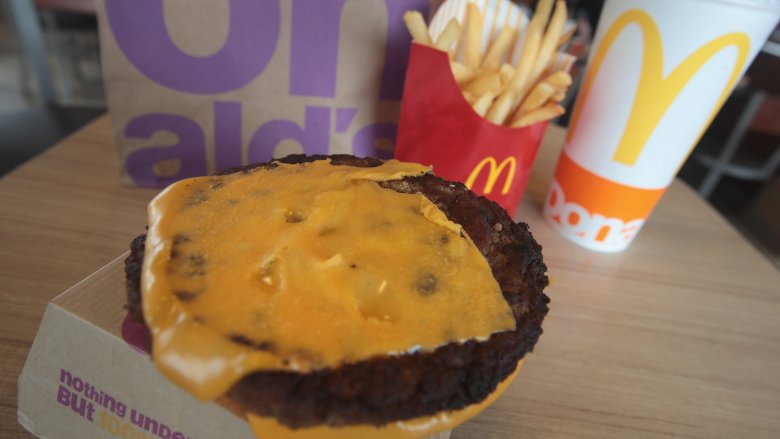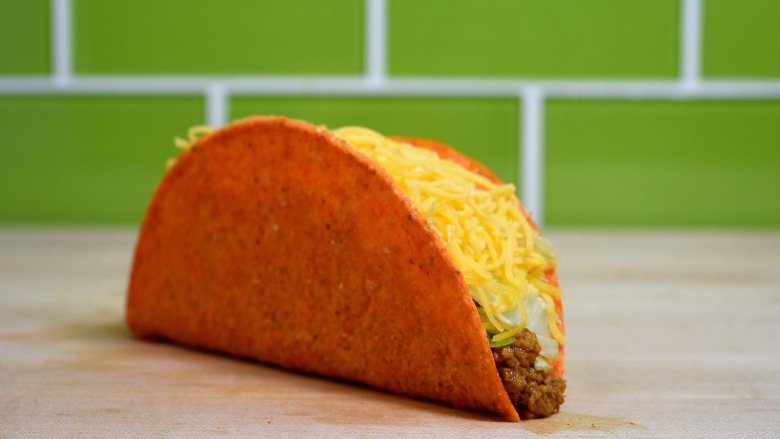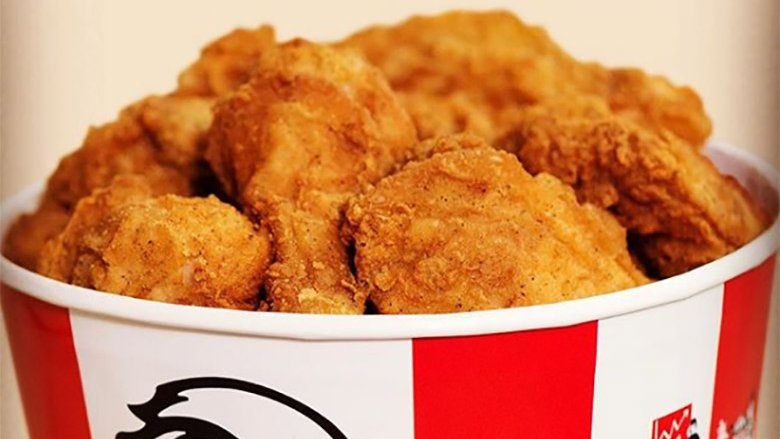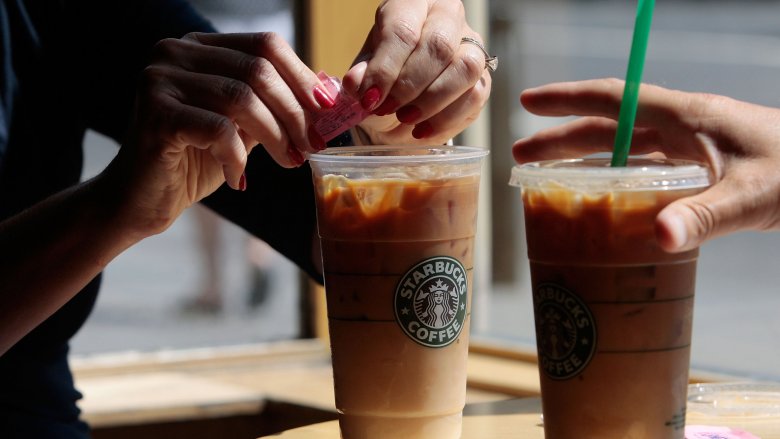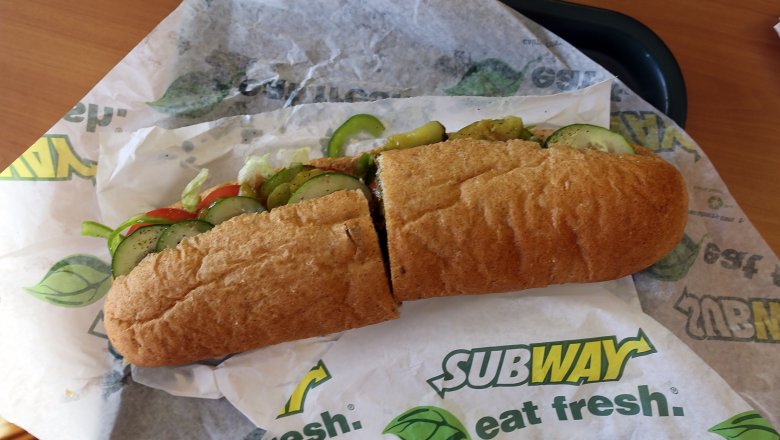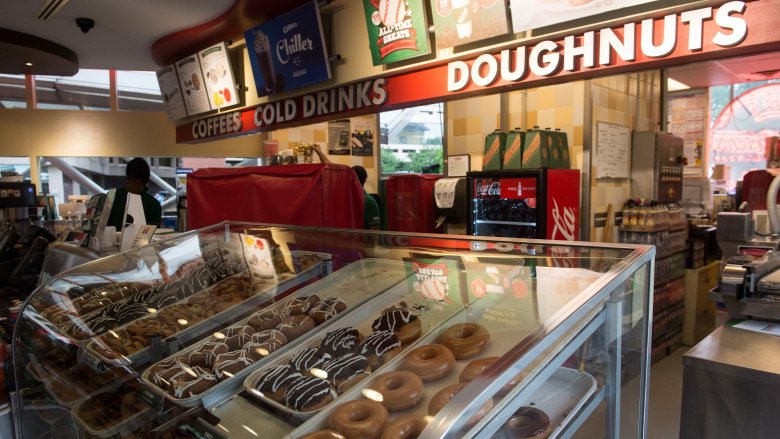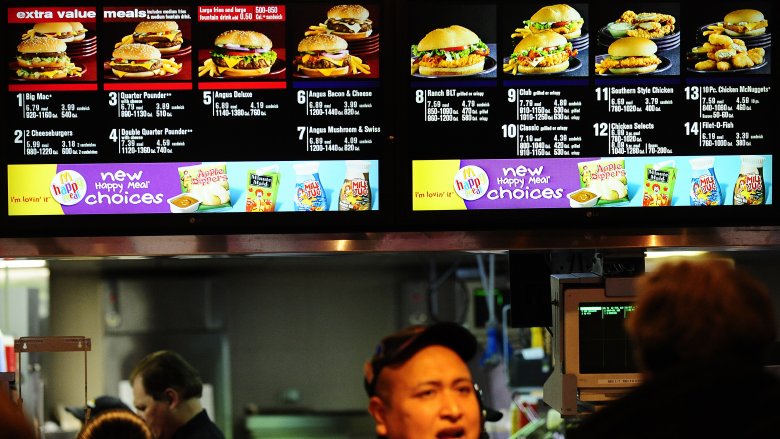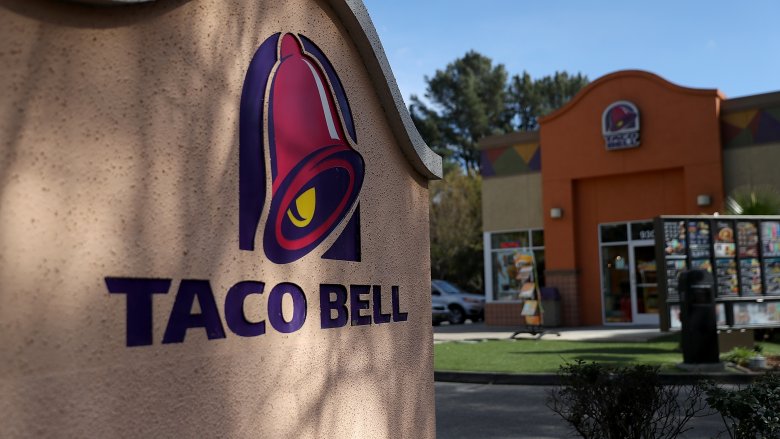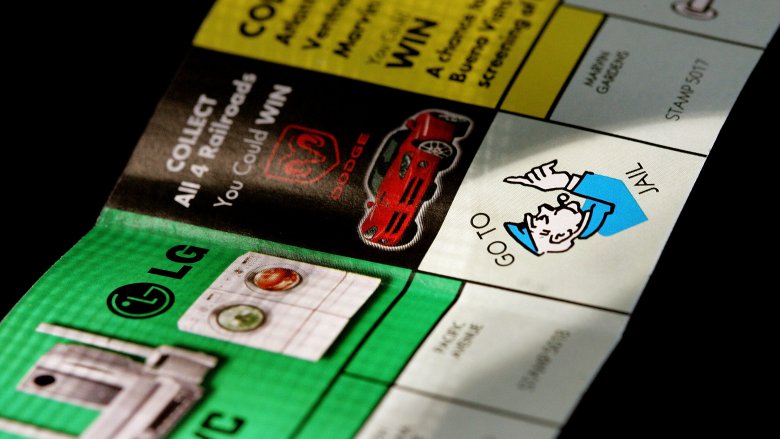People Who Tried To Scam Fast Food Restaurants And Failed
Americans have been accused of being too quick to sue. What might be more accurate is that some people are too quick to abuse the legal system and sue over ridiculous circumstances. Maybe it's because fast food restaurants are so abundant (and successful), but something about them acts as a magnet for those looking to scam some big cash. There don't appear to be any statistics for how many lawsuits are brought against fast food companies every year, but they certainly aren't a legal rarity.
Arguably the most well-known fast food lawsuit is the hot coffee McDonald's lawsuit of the 1990s. Stella Liebeck sued McDonald's after spilling hot coffee on herself and receiving third-degree burns. Her suit placed blame on McDonald's for making the coffee too hot and Liebeck walked away with an undisclosed amount of money (less than $600,000). Crooks and fraudsters around the nation instantly had dollar signs in their eyes.
From disagreements over napkins to wrong orders and contest crime rings, here are some of the worst offenders when it comes to fast food scams and hustles that totally failed.
Two teens attempted to sue McDonald's for making them obese
The old saying, "you are what you eat" holds especially true if fast food is a staple of your diet. That didn't stop a lawsuit from grabbing national attention in 2003 though, when two teenagers tried to sue McDonald's for making them obese. That's right, Quarter Pounders and McNuggets don't make you skinny!
Jazlyn Bradley and Ashley Pelman were regulars at two McDonald's locations in the Bronx, and argued that they weren't provided with "sufficient information about the health risks" linked to a diet of Big Macs and fries.
The judge ultimately ruled the two teens were responsible for their own diet choices. "Nobody is forced to eat at McDonald's," Judge Robert W. Sweet said. "This opinion is guided by the principle that legal consequences should not attach to the consumption of hamburgers and other fast-food fare unless consumers are unaware of the dangers of eating such food."
At the time, McDonald's patrons had to visit the company's website for nutritional information. The restaurant began posting calorie totals for all of its items on its in-store menus back in 2012. So now there's really no excuse for playing dumb with the calories in your order of fries.
McDonald's only gave a man one napkin, so he tried to sue them for $1.5 million
Yes, you read that headline correctly, a California man brought a $1.5 million lawsuit against the Golden Arches because he was allegedly only given one napkin with his meal. It's those sort of injustices that simply will not stand in the land of the free!
Webster Lucas was trying to enjoy his Quarter Pounder, but much to his dismay, he was only given one napkin to tidy up with. Lucas said that when he asked for more napkins the manager refused and told him he'd already had enough. Well, that's when things took turn for the ugly. Lucas who is African-American, claimed that Angel Arciga, who is Hispanic, showed prejudice towards him. Lucas told the Arciga "I didn't come here to argue over napkins. I came here to eat," before Arciga allegedly mumbled something about "you people."
Oh snap.
Lucas emailed the restaurant's general manager who apologized and offered free burgers (and presumably unlimited napkins) but it wasn't enough to heal Lucas' wounds. He later wrote "I am unable to work because of the undue mental anguish and the intentional infliction of emotional distress cause by your employee" before filing his $1.5 million lawsuit.
The lawsuit was dismissed in October 2014, but that wasn't the worst of it for Lucas. That's the case that landed him on California's Vexatious Litigant List, prohibiting him from filing lawsuits for a certain period of time.
The unwanted cheese lawsuit that almost cost McDonald's $5 million
If you've ordered a cheeseburger more than a few times in your life, you probably know that at some restaurants, the cheese costs extra — while at some, it's included. You probably shrug at the minimal charge, mostly because it's worth it to have your sandwich cheesed (or not cheesed) to your liking. Florida couple Cynthia Kissner and Leonard Werner, however, don't take cheese charges so lightly.
In 2018, the pair tried to sue McDonald's in a lawsuit that was nothing more than a poorly executed and frivolous scam. The couple claimed that they had been charged the full price for a Quarter Pounder with cheese, even though they ordered it without cheese. In the minds of Kissner and Werner, because McDonald's charges 30 cents more for a cheeseburger than a hamburger, they had been ripped off by the Golden Arches and were entitled to $5 million for their "suffered injury."
Despite their ironclad paper-thin argument that McDonald's had become "unjustly enriched by these practices," U.S. District Judge William Dimitrouleas dismissed the lawsuit and called it "absurd." The judge explained to Kissner and Werner that it's up to the customer to tap into the common sense part of their brain when ordering off the menu.
The infamous Wendy's finger in the chili case
One of the strangest cases of a person trying to pull a fast one on a fast food chain is the 2005 chili finger incident cooked up by Anna Aayala. The woman was eating at a San Jose, California Wendy's when she claimed that she took a bite of chili that included a partially-cooked piece of human finger. She pretty much ruined the idea of ever ordering Wendy's chili again for customers everywhere, and the story reportedly cost the fast food chain an estimated loss of $21 million.
Aayala couldn't pull off the ruse though and eventually confessed that her husband had gotten the severed finger from a coworker who had had lost it in a factory accident. Aayala said that she cooked the finger herself before dropping the digit into her bowl of chili and crying wolf. She was sentenced to nine years in prison (though she served only four) and was fittingly banned from Wendy's for life.
After her early release for good behavior, Aayala claimed to have "learned her lesson" about lying. The lesson didn't didn't stick particularly well though, and she eventually found herself back in prison after lying about a non-chili related crime.
A man attempted to sue McDonald's for $10 million for… you guessed it, cheese
Apparently, Cynthia Kissner and Leonard Werner don't keep tabs on McDonald's legal proceedings. If they had, then they would have known about the story of Jeromy Jackson and never bothered with their $5 million Quarter Pounder lawsuit.
Jackson attempted to become a multimillionaire over a decade earlier when he sued the company for putting his cheese on his burgers. Rather than go after a paltry $5 million, Jackson had a go big or go home mindset and sued Mickey D's for a cool $10 million!
Jackson said in his case that he repeatedly told the McDonald's staff not to put cheese on his his two Quarter Pounders because he was allergic. Maybe Jackson annoyed the McDonald's employees or maybe it was an honest mistake, whatever the case, his burger had cheese and he had to be rushed to a hospital because of an allergic reaction. It didn't take long for the story to raise suspicious eyebrows with one opinion piece asking "So apparently the 'multiple preventive steps' he took 'to assure his food did not contain cheese' did not include looking at the damn sandwich before eating it."
As you might have guessed, Jackson didn't get $10 million and the case was eventually dismissed.
A prison inmate tried to sue Taco Bell for stealing his idea
One would imagine that when you're doing hard time, you have a lot of time to simply sit and think. You may even have a brilliant idea that the rest of the world would rejoice over and shower you with riches... if only you weren't behind bars. That's the predicament of Gary Cole, a super-max prison inmate in Colorado who claims it was he, not some hot shot Yum Brands product development scientist who thought of using Doritos as taco shells.
Cole is serving 25 years for using a firearm that was involved in a violent crime (among other charges), but more importantly, he tried suing Taco Bell for stealing his Doritos Locos Tacos idea. Cole said he mailed his attorney a notarized document of the idea in 2006 and upon learning of the Doritos Locos Tacos, he demanded an FBI investigation. (Spoiler alert: it didn't happen.) Cole then contacted the IRS about the matter telling them "a check was made out to a person for a large amount by Taco Bell, Frito Lay, and Pepsi Co. Inc. for an idea or invention that was submitted to them by theft and fraud." He demanded the IRS give him this person's name and address. (That didn't' happen either.)
Finally, Cole apparently reached out a Colorado law firm on the matter. They didn't take his case but did offer some legal advice. "Do not 'put a knife' to the staff. That won't do you, or us, any good."
He decided to represent himself, but the case was dismissed under the "three strikes" rule that prohibits inmates from filing civil lawsuits if they've already filed three or more that have been dismissed while incarcerated. Apparently, Cole was passing his time in prison by filing frivolous lawsuits.
A woman wanted KFC to pay her $20 million for a bucket of chicken
If you've ordered a meal from a fast food place and it looked exactly as appetizing as in the commercial, consider it a miracle. The chances of snagging $20 million for a sad piece of junk food, however, are so slim that literally falling into a pit of hundred dollar bills is probably more likely. Anna Wurtzburger of Hopewell Junction, New York, brought a $20 million lawsuit against KFC for not serving her a bucket "overflowing with chicken," despite seeing said bucket in KFC's commercials.
Wurtzburger didn't just file her lawsuit after buying a single bucket, because that would be an amateur move, and she wanted her case to be bulletproof. Nope, Wurtzburger said she made "multiple purchases" at her local KFC in 2016 after being sold KFC's commercial lies. When the disgruntled customer "received the bucket of chicken there were only eight pieces of chicken in it," according to her legal complaint. "There was not enough chicken in the bucket to fill up the bucket... (the ads) falsely stated that 'the meal could feed your whole family.'"
She argued that if it's going to overflow with just eight pieces a smaller bucket should have been used and that KFC owed her a check for $20 million. A New York judge granted KFC's request to dismiss the case for Wurtzburger failing to provide real evidence that a violation of the law had taken place. (Insert sad trumpet noise here.)
A woman wanted $5 million from Starbucks for too much ice in her coffee
As crazy as it may sound, not one, but two people have wasted the court's time by suing Starbucks for adding too much ice to their iced coffee.
Illinois resident Stacy Pincus filed a lawsuit against the coffee giant for adding too much ice to her iced beverage and claiming it was misleading to the customer. Pincus felt $5 million in damages was a reasonable price to ask for her watered down lattes. The lawsuit was eventually dismissed and Pincus was presumably left with just an over-iced coffee to wash away her sorrows .
Next up Alexander Forouzesh, a man who tried suing Starbucks for the same thing in California and not only had his case dismissed but had his intelligence called into question by the U.S. District Judge Percy Anderson who said:
"If children have figured out that including ice in a cold beverage decreases the amount of liquid they will receive, the court has no difficulty concluding that a reasonable consumer would not be deceived [by the ice]..." Alexander Forouzesh may want to take some of the ice from his coffee and us it to ice down that judicial burn he was served.
The Subway footlong lawsuit that almost cost the chain $500k
Never mind the fact that Subway was selling full-sized hoagies for five bucks and losing money by doing so, some of those sandwiches weren't precisely 12 inches. Thanks to a teen with a tape measure and too much free time, Subway's slightly less than a full foot sandwich spawned a lawsuit for half a million.
The whole fiasco started in 2013, when a teen exposed Subway's devious practices of selling 11-inch subs masquerading as foot-longs by posting a photo to Facebook. It didn't take long for some attorneys from all over the U.S. to jump on the opportunity and start measuring subs from various Subway restaurants. They all came up short and Subway nearly had to hand over $525,000 in legal fees after promising their breads would be a more uniform size.
The chain would have had to cough up the hefty fees if Judge Diane Sykes had not thrown out the settlement. Sykes noted that even with new protocols put into place by Subway, there was still the real possibility that some sandwiches could be "shorter than advertised" since bread tends to change shape when it bakes. Like so many of the cases examined here, the judge chalked it up to the responsibility of customers using "common sense."
A man tried to sue Krispy Kreme for not using fresh raspberries
Shouldn't a glazed doughnut from Krispy Kreme be free of controversy? Apparently not, because Jason Saidian of California filed a lawsuit against the doughnut chain for false advertising with the berries — or lack thereof — used in the doughnuts he ordered.
In the suit, Saidian said he purchased raspberry Krispy Kreme doughnuts because raspberries "are a rich source of Vitamin C, Vitamin K, potassium and dietary fiber ... and help fight against cancer, heart and circulatory disease, and age-related decline." If you need a second to process the stupidity of Saidian's health strategy, we understand.
Saidian wanted $5 million in damages and "disgorging of profits made from" the $1.09 doughnuts. Krispy Kreme's attorneys responded to Saidian's lawsuit with a tongue lashing, telling him "No reasonable consumer would expect a doughnut to deliver the same level of antioxidants, for example, as green tea;" before adding "Consumers also understand that doughnuts are desserts..."
Perhaps the sugar high from the doughnuts wore off and Saidian realized his case would get him laughed out of court, because it was voluntarily dismissed.
A woman sued McDonald's, claiming extra value meals were a scam
The McDonald's Extra Value Meal has been around for nearly three decades. Would you believe the fast food giant was pulling a fast one on all of us and it wasn't until 2016 that a brave citizen finally revealed there was no extra value in the meal at all? Well, that's what Chicago McDonald's patron Kelly Killeen was hoping to prove when she brought a lawsuit against the company for consumer fraud and deceptive business practices.
Killeen ordered a breakfast meal that was composed of two sausage burritos, hash browns, and a medium coffee for a total of $5.08. Some quick math and she calculated that she could have ordered all the items separately for $4.97.Uh oh, McDonald's had some explaining to do.
A disgruntled Killeen filed suit against McDonald's, arguing their "pervasive pattern of fraudulent, deceptive and otherwise improper advertising" robbed her of those 11 cents. United States District Court judge Elaine E. Bucklo dismissed the case on the grounds that prices are posted on the menu and it's up to the customer to use their eyes to decide whether to go the Extra Value Meal route or freewheel it and live a la carte.
A man tried suing Taco Bell because of a text message
Nobody likes getting unwanted text messages, that's why under the Telephone Consumer Protection Act (TCPA) businesses can't continue to harass customers after a customer opts out of receiving more text messages. Receiving the standard confirmation text after replying "STOP" to Taco Bell was all it took to push Jason Ibey over the edge in 2012. Ibey, an attorney, filed suit against Taco Bell for sending him spam.
It didn't take long for the case to get dismissed with Judge Marilyn Huff throwing the case out and clarifying to Ibey that Taco Bell's "single, confirmatory text message did not constitute unsolicited telemarketing." Oh well, that's the end of that, right? Ha! Ibey doesn't go down so easily.
Ibey refiled his case, arguing that even the final confirmation message of opting out was spam with Taco Bell making one last attempt at winning him over. What sort of compensation Ibey was hoping to get isn't known, but similar cases also bit the dust.
A cop almost got away with scamming millions from the McDonald's Monopoly game
Unlike so many of the other cases of people trying to get rich off bogus fast food lawsuits, Jerome Jacobson took a totally different approach with his scam — and it worked for a while. Between 1989 and 2001, the former Georgia police officer stole more than $24 million in prizes from McDonald's after taking a job with the company as a private security officer.
Jacobson was given the task of overseeing the prize stamp printing process and thus knew how to access the winning stamps of the popular McDonald's Monopoly game. The chance at making some easy money was too tempting and in no time, he was sending the winning game pieces to friends and family across the country and then taking a cut of the winnings. With a criminal network that included "mobsters, psychics, strip club owners, convicts, drug traffickers, and even a family of Mormons" Jacobson's story has all the makings of a Hollywood heist movie.
A tip-off in 2000 eventually brought it all crashing down and Jacobson, plus several others were arrested for mail fraud. He was eventually given a McJail sentence of three years in prison and ordered to pay back $12.5 million of the money he stole.
